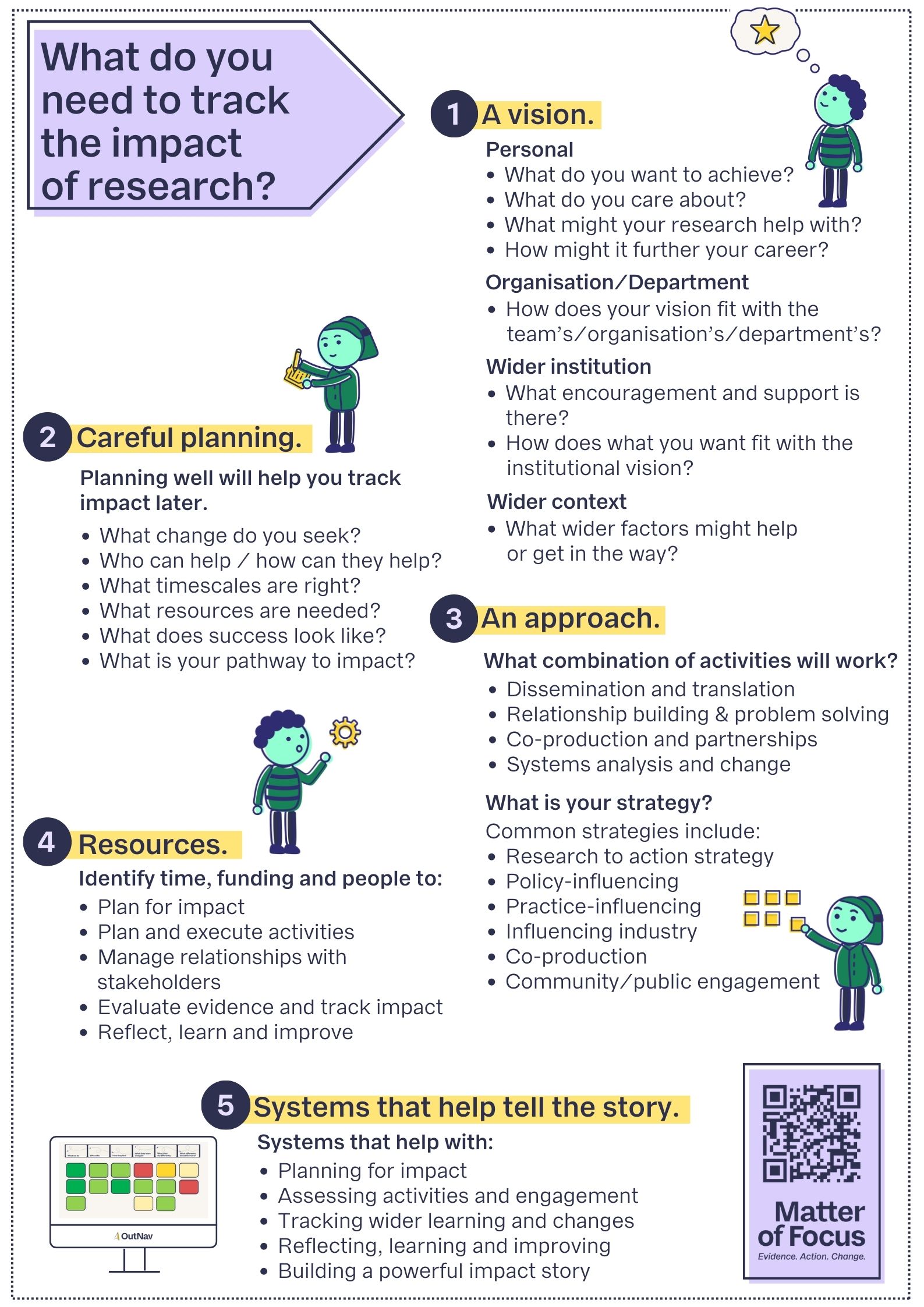I have been incredibly fortunate to work with many researchers, impact officers, research centres and institutions over the last 25+ years of my career: so many conversations, workshops and training days about how to plan for, make and track research impact.
This infographic pulls together some of the learning, focusing on what people need to be able to track their impact. It’s not just down to what individuals or teams do, the bigger picture matters too.
I explore this in more detail in my webinar, recorded live in July 2024 – find out more and watch here.
We also offer training, consultancy and software that can help at an individual and institution-wide level. Find out more here.

1. A vision
Personal
- What do you want to achieve?
- What do you care about?
- What might your research help with?
- How might it further your career?
Organisation/Department
- How does your vision fit with the team’s/organisation’s/department’s?
Wider institution
- What encouragement and support is there?
- How does what you want fit with the institutional vision?
Wider context
- What wider factors might help or get in the way?
2. Careful planning
Planning will help you track impact later.
- What change do you seek?
- Who can help / how can they help?
- What timescales are right?
- What resources are needed?
- What does success look like?
- What is your pathway to impact?
3. An approach
What combination of activities will work?
- Dissemination and translation
- Relationship building & problem solving
- Co-production and partnerships
- Systems analysis and change
What is your strategy?
Common strategies include:
- Research to action strategy
- Policy-influencing
- Practice-influencing
- Influencing industry
- Co-production
- Community/public engagement
4. Resources
Identify time, funding and people to:
- Plan for impact
- Plan and execute activities
- Manage relationships with
- stakeholders
- Evaluate evidence and track impact
- Reflect, learn and improve
5. Systems that help tell the story.
Systems that help with:
- Planning for impact
- Assessing activities and engagement
- Tracking wider learning and changes
- Reflecting, learning and improving
- Building a powerful impact story
